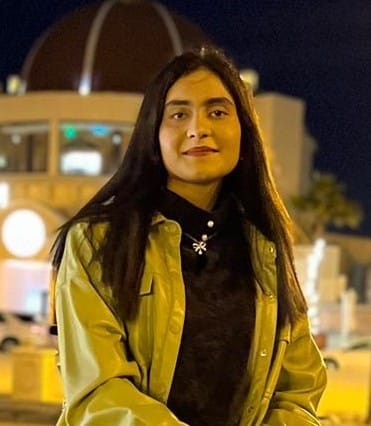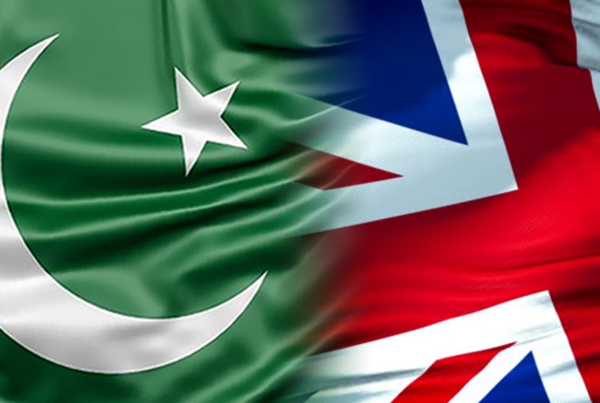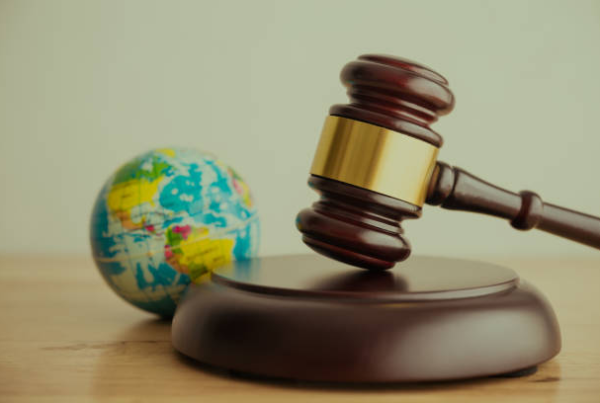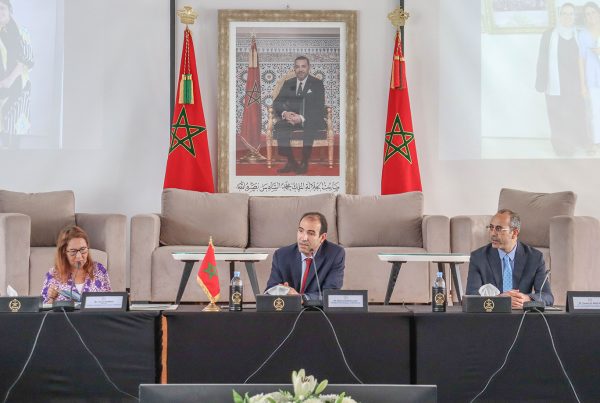
By Kainat Rashid
The author is an intern at the OIC Ombudsman Association (OICOA) Secretariat and studies English Literature at the National University of Modern Languages.
The ongoing conflict between Israel and Gaza has been an important point of international concern, particularly regarding the human rights violations by the Israeli Defense Forces (IDF). These violations are of all types, including civilian casualties, the destruction of infrastructure, misappropriated use of force, restrictions on movement and access, and the lack of accountability for actions taken during military operations. A deep analysis of these aspects shows how these actions led against the norms of international humanitarian law and human rights.
Civilian casualties in Gaza have been a significant issue. Reports from various human rights organizations indicate that the IDF’s military operations often result in high civilian deaths. According to B’Tselem, an Israeli human rights organization, numerous Israeli airstrikes and shelling have hit densely populated areas, leading to the deaths of hundreds of civilians, including children (“Gaza Strip”). The principle of distinction in international humanitarian law requires parties to a conflict to distinguish between military and civilians, ensuring that attacks are directed only at military targets. The constant failure to avoid civilian violence raises serious questions about our claim to follow these principles.
The destruction of civilian infrastructure is another cause of the humanitarian crisis in Gaza. During various military operations, schools, hospitals, and homes have been destroyed or damaged. Human Rights Watch reported that the IDF’s bombardment of Gaza in May 2021 alone resulted in the destruction of several residential buildings and critical infrastructure, leaving thousands homeless and without access to essential services (“Gaza: Israeli Airstrikes”). The targeting of such infrastructure not only disrupts daily life but also violates international humanitarian law, which protects civilian objects unless they are being used for military purposes.
The issue of appropriate use of force is another important concern. The IDF’s military operations often involve heavy bombardments and the use of advanced weapons in highly populated civilian areas. Amnesty International has documented multiple incidents where the force used by the IDF appeared to be much more than the military advantage gained (“Israel/OPT: Pattern of War Crimes”). This inappropriate use of force causes attacks that are expected to cause loss of civilian life or damage to civilian properties that would be more than the military advantage.
Since 2007, Israel has maintained a land, air, and sea blockade on Gaza, severely limiting the movement of people and goods. This blockade has led to economic hardships, shortages of medical supplies, and a decline in the quality of living. According to the United Nations Office for the Coordination of Humanitarian Affairs (OCHA), the blockade has resulted in a “protracted humanitarian crisis,” with over 80% of the population relying on humanitarian aid (“Gaza Blockade”). The restrictions on movement violate the right to freedom of movement and access to essential services, as present in international human rights law.
The lack of accountability for alleged war crimes and human rights violations expands the problem. Investigations into the actions of the IDF during military operations are often seen as non impacting and biased. According to the United Nations Human Rights Council, there have been “persistent impunity” and a failure to hold those responsible for violations accountable (“Report of the Independent International Commission of Inquiry on the Protests in the Occupied Palestinian Territory”).
Humanitarian access to Gaza is another critical issue. The blockade and frequent military operations disturb the delivery of humanitarian aid, including food, medical supplies, and other essential goods. Organizations such as the International Committee of the Red Cross (ICRC) have repeatedly called for unhindered access to provide assistance to those in need.
The Marrakesh Declaration on the Situation in Gaza, adopted by the OIC Ombudsman Association (OICOA) at its 11th Board Meeting held in Marrakech and hosted by Mediator of the Kingdom of Morocco – H.E. Mohamed BENALILOU, represents a significant step in addressing the ongoing problems in Palestine. This declaration not only condemns the actions of the Israeli Defense Forces but also calls for international union and action. The impact of this press release has the potential to be extensive, influencing diplomatic relations, humanitarian efforts, and global public opinion.
The Marrakesh Declaration focuses on international bodies and governments to acknowledge and respond to the human rights violations in Gaza. By clearly condemning the actions of the Israeli Defense Forces, the OICOA has taken a step towards collective influence to make the policies of OIC member states and other nations to work in favour of Palestine, and to stop this human rights violation. This press release could lead to increased diplomatic efforts to resolve the Palestinian crisis and might even lead the United Nations and other international organizations to take more serious actions. Moreover, the declaration highlights the solidarity among OIC member states, showing their commitment to addressing injustices faced by the Palestinian people. This unity can enhance diplomatic relations within the OIC and strengthen their collective bargaining power in international forums. The call for immediate and serious action could also lead some countries to reconsider their foreign policies towards Israel, which can aid in stopping the Israeli Defense Forces to violate the rights of the people of Gaza.
One of the major elements of the Marrakesh Declaration is the request for extensive humanitarian assistance to Gaza. This aspect of the declaration can cause a great change in the resources and support from both governmental and non-governmental organizations worldwide. By putting light on the serious requirement for rebuilding homes and restoring communities, the declaration can cause international aid efforts, leading to a more coordinated and effective response to the humanitarian crisis. The emphasis on providing humanitarian help also shows the importance of protecting human dignity and ensuring the basic rights of the Palestinian people. This can lead to an increase in funding for relief operations, medical aid, and infrastructure development in Gaza. The involvement of high-profile figures, such as His Majesty King Mohammed VI, further amplifies the call to action and can attract more attention and resources to the cause. Furthermore, this humanitarian call can inspire a greater number of international actors to engage in peace building efforts and conflict resolution initiatives, creating a more sustained and systemic approach to addressing the root causes of the conflict.
The Marrakesh Declaration serves as a powerful statement that can influence global public opinion. By condemning the actions of the Israeli Defense Forces and highlighting the suffering of the Palestinian people, the declaration raises awareness about the crisis in Gaza. This can lead to increased media coverage and public discourse on the issue, leading to a shift in public opinion towards greater empathy and support for the Palestinian cause. The declaration’s strong language and unequivocal condemnation can also challenge existing narratives and inspire the individuals and organizations to reevaluate their perspectives on the conflict. This shift in public opinion can pressure governments and international bodies to take more concrete actions to address the situation in Gaza. Additionally, the declaration can serve as an educational tool, informing global audiences about the historical and socio-political context of the Gaza conflict, thereby encouraging a more informed and engaged international community.
This request for reporting of human rights violations in Gaza is an important aspect of the Marrakesh Declaration. By provoking international bodies to hold accountable those responsible for egregious acts, the declaration emphasizes the need for justice and accountability. This can lead to more nuanced investigations and documentation of human rights abuses, which is essential for pursuing legal actions against those violating the human rights. Enhanced monitoring can also provide valuable data and evidence that can be used in international courts and human rights organizations to seek justice for the victims. This focus on accountability reinforces the principle that violations of human rights will not go unnoticed or unpunished, thereby contributing to a culture of respect for international law. Furthermore, the documentation and reporting efforts can serve as an example to future violations, as perpetrators become aware of the consequences of their actions.
The Marrakesh Declaration also highlights the importance of multilateralism and international cooperation in addressing the Gaza crisis. By calling on the international community, including OIC member states and other global stakeholders, to take action, the declaration highlights the necessity of collective efforts in handling complex humanitarian and political issues. This emphasis on multilateralism can strengthen global governance frameworks and encourages a more collaborative approach to resolve the conflict and towards making peace. The declaration’s appeal to international bodies to provide humanitarian help and support for the Palestinian cause can also lead to the establishment of new partnerships and alliances, further enhancing the capacity of the international community to respond to crises effectively.
In addition to its immediate impact, the Marrakesh Declaration has the potential to influence long-term policy changes and institutional reforms. By setting a precedent for how international organizations and states can respond to human rights violations, the declaration can inspire the development of new ways and strategies for protecting the people and promoting peace and justice. This can include the creation of specialized task forces, the implementation of targeted sanctions, and the enhancement of existing human rights systems. Moreover, the declaration can serve as a model for future resolutions and declarations, guiding the international community in its efforts to address other conflicts and humanitarian crises around the world.
The Marrakesh Declaration on the Situation in Gaza has the potential to create significant ripple effects across the world. Its impact can be seen in the realms of diplomacy, humanitarian aid, public opinion, and human rights monitoring. By uniting OIC member states in condemnation of the actions in Gaza and calling for immediate and decisive action, the declaration stands as a proof of the power of collective efforts in the pursuit of justice, equity, and human dignity. The declaration not only addresses the immediate crisis but also sets a guideline for how the international community can and should respond to human rights violations anywhere in the world. By promoting a more informed and engaged global public, enhancing accountability mechanisms, and promoting multilateral cooperation, the Marrakesh Declaration can contribute to the development of a more just and peaceful international order.






